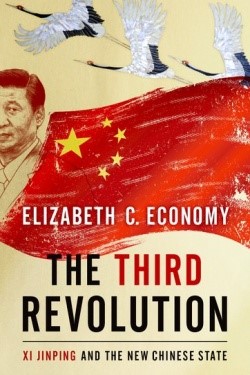By Elizabeth C. Economy
Oxford University Press, 2018
Elizabeth C. Economy’s book The Third Revolution: Xi Jinping and the New Chinese State provides a carefully crafted synthesis of China’s transformation under Xi Jinping. Economy, the director of Asia Studies and the C. V. Starr senior fellow at the Council on Foreign Relations, explores the country’s domestic reforms, including the centralization of power, as well as China’s increased projection of power internationally. In doing so, Economy illustrates a “third revolution” in the country’s modern history — replacing Deng Xiaoping's Second Revolution, which had featured a quiet foreign policy and the opening of China economically.
Economy’s study illuminates the bifurcated strategy behind Xi Jinping’s third revolution: more ambitious ventures abroad, but a more insular and controlled country at home. Seeking to explain the objectives and methods behind what she calls the “illiberal state seeking leadership in a liberal world order,” Economy points to Xi Jinping’s ultimate goal, “the rejuvenation of the great Chinese nation.” The Third Revolution provides strategic recommendations to U.S. policymakers seeking to navigate relations with Xi’s China, recognizing the challenges and implications presented by China’s rising power in the years to come.
